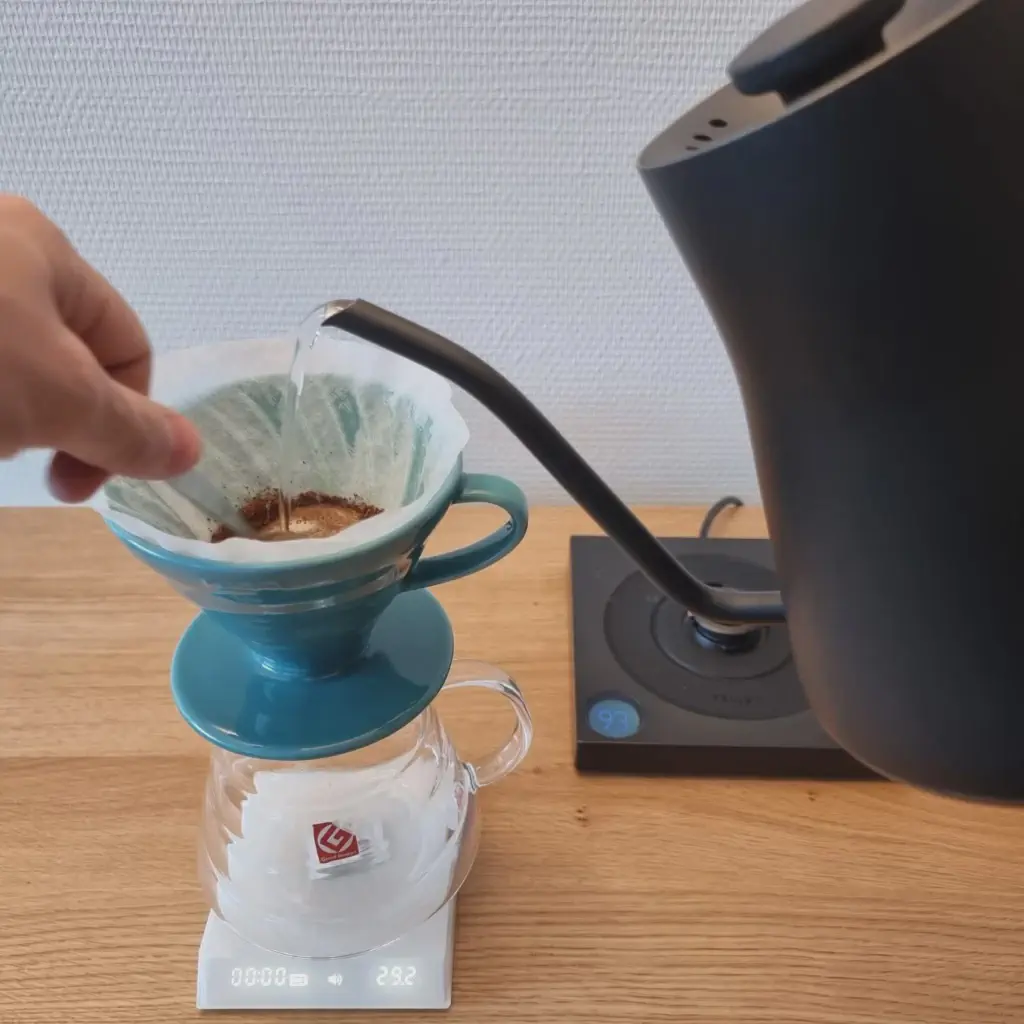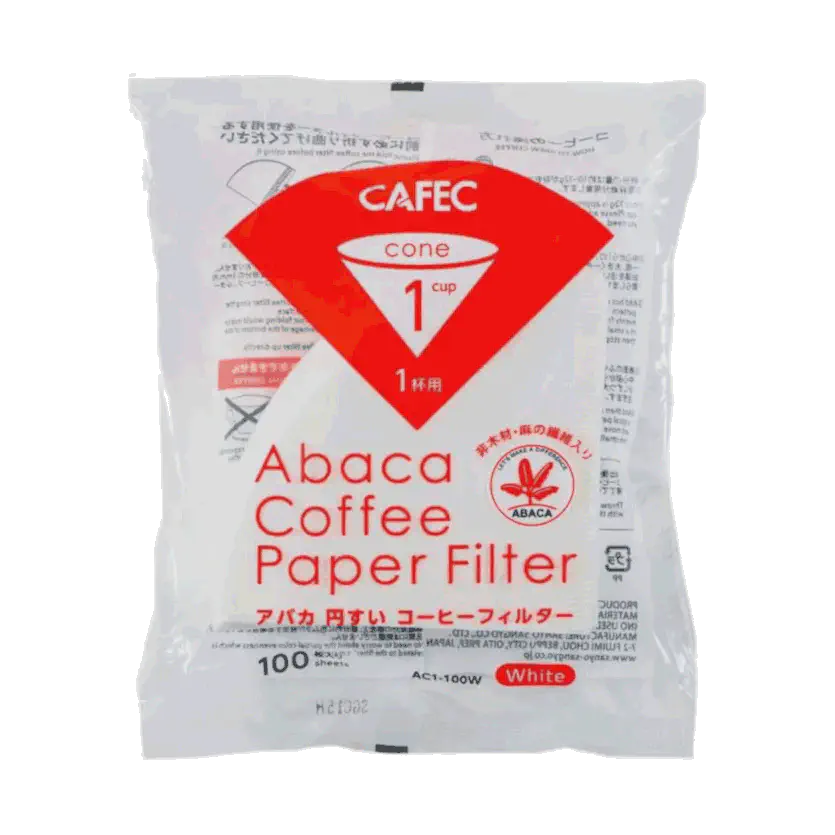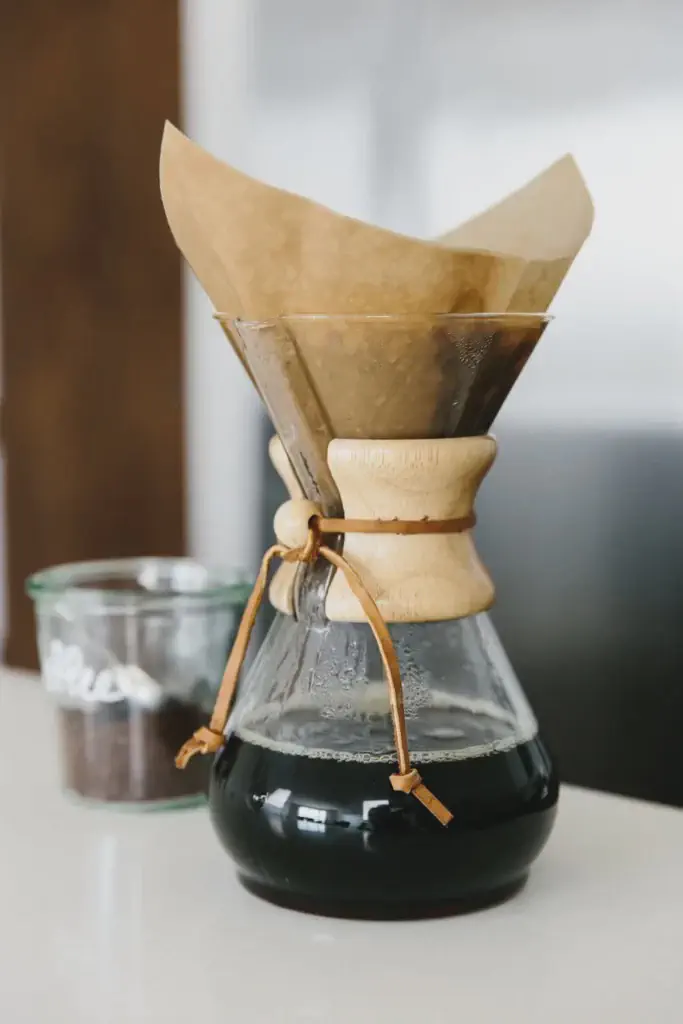5 Reasons Why Your Filter Coffee Can Be Improved (troubleshooting)

Discover the expert advice of Asser Christensen, coffee specialist, to improve your filter coffee brewing. This article highlights practical solutions to common mistakes (pouring too fast, improper grind size, problematic filters and drippers, coffee density). Implement these simple adjustments to achieve consistent extraction and a cleaner cup. Don’t let these obstacles discourage you, start your filter coffee journey today!
Manual filter coffee brewing is a delicate art that can sometimes be a source of frustration, especially when the filtration process stalls. Asser Christensen (Q Arabica Grader and coffee journalist) shares his expertise to help enthusiasts overcome this challenge. Here are the five main reasons for stalling and the solutions to fix them.
1. Pouring too aggressively (flow rate, height, consistency)
Pouring is a crucial aspect of filter coffee preparation. Pouring too aggressively disturbs the coffee bed, stirs up fines, and promotes filter clogging. This mistake is common, especially at the beginning.
Solution: use a gooseneck kettle and pour gently, in regular circles, at low height, to distribute water evenly without digging.

Fellow Stag EKG gooseneck kettle pouring water into a V60
2. Poor grinder or too fine grind (particle distribution)
An imprecise grinder generates too many fines and significantly slows down the flow. Blade grinders or certain entry-level models produce very inconsistent grinds.
Solutions:
- Slightly coarsen the grind (coarser) and adjust the ratio if needed.
- Invest in a dedicated filter grinder for a cleaner and more consistent distribution.
For electric grinders, the Fellow ODE Gen 2 has an excellent reputation for filter extractions (I’ve had the opportunity to try it, it’s good).
- Fellow ODE — electric grinder for filter coffee affiliate link
- Or, find our coffee grinder reviews here
3. Unsuitable filters (resistance, textures and clogging)
Filters play an essential role. Certain batches of Hario V60 filters have been criticized for their tendency to clog; the older, more textured filters sometimes flowed faster.
Simple solution:
try alternative filters
affiliate linkwith more consistent flow, such as Cafec Abaca.

4. Wrong dripper (geometry, vents, materials)
The choice of dripper influences the flow. The stainless steel version of the Kalita Wave is known to clog more often, because the indentations at the bottom are shallow: the wet paper can stick and obstruct the holes.
Solution: avoid the stainless steel version and opt for the Kalita Wave in glass or ceramic, which offer a more consistent flow rate. In general, check the ventilation and height of the channels of the dripper you’re using.

5. Dense Coffee and Light Roast (fines, altitude, varieties)
Dense coffees (often light roasts, high altitude) produce more fines during grinding and slow down the flow rate. This is the most difficult factor to work around, but mastering the four previous points increases your chances of success.
Tips: choose a slightly coarser grind, rinse your filter well, stabilize your pouring technique and adapt the recipe to the coffee (ratio, temperature, agitation).
Conclusion
Manual preparation of filter coffee requires precision and consistency. By understanding these causes of stalling and applying the solutions from Asser Christensen, you will improve the flow and the clarity in the cup. From the grinder to the filter, from the dripper to the pouring profile, every detail matters.
Appendix: Quick Reference Guide (troubleshooting at a glance)
- Pouring: slow, steady, low height, in circles — avoid aggressive streams.
- Grind: open up one notch if flow stalls; favor a filter grinder.
- Filters: test Cafec Abaca if certain Hario V60 batches clog for you.
- Dripper: avoid Kalita Wave stainless steel, prefer glass/ceramic.
- Coffee: dense/light coffees ⇒ expect more fines; adjust grind/ratio/pouring.
